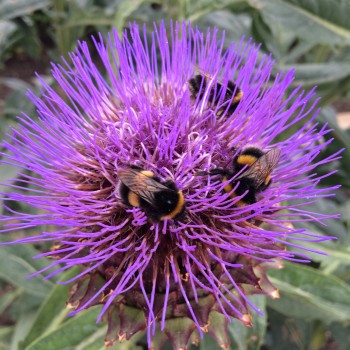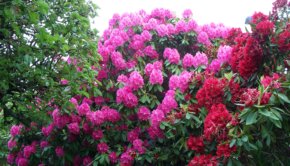RHS launches winter protection plan for pollinators

RHS launches winter protection plan for pollinators
21 September 2014
The Royal Horticultural Society (RHS) and The Wildlife Trusts (TWT) in the UK are urging people to do more to support the countries vital pollinators over the winter months. The initiative was launched during Wild About Gardens Week, which ran from 15 September to 21 September.
While information can be easily found to assist pollinating insects during spring and summer months, not much information was available for winter months. For this reason the RHS and TWT joined forces to provide gardeners with a winter survival guide for the UK’s 1,500 species of pollinating insects.
The groups are seeking gardeners to provide places for pollinators to spend the winter and are also encouraging gardeners to plan their garden for the year ahead, in an effort to offer vital pollen and nectar-rich food for the benefit of pollinating insects.
Commenting on the initiative Andrew Salisbury, RHS Senior Entomologist, said “Pollinators and other invertebrates need sheltered places to spend the cold winter months. By being a little less tidy, particularly around the base of hedges and in garden borders, and by creating bug hotels and log piles we can provide much-needed overwintering sites. This will also give pollinators in the garden a head start in spring.”
The action plan is not just focused on bees however. Paul Wilkinson, TWT’s Head of Living Landscape, explains it is about catering for all pollinating insects that can be found in gardens. Wilkinson explains “Although the importance of bees is now widely recognised, let’s also give credit to and raise awareness of our lesser-known pollinators, including peacock butterfly, hummingbird hawk moth and marmalade hoverfly. Ultimately, it’s looking after the ‘small stuff’ which helps to create a healthier bigger picture for wildlife and the natural environment. Collectively, our gardens make up the biggest nature reserve in the UK. Let’s make it the biggest and best it can be.”
During Wild About Gardens Week a range of wildlife gardening talks and events, including bioblitzes, mini-beast hunts, bug hotel building, moth trapping and more, were held. The events were designed to help educate the public on the simple steps they can take to help support pollinators through winter. The RHS also encouraged its 3,300 community gardening groups, 17,250 schools,145 Partner Gardens and the public to hold wildlife gardening events during the week.
More information on the initiative can be found on www.wildaboutgardens.org.uk



 Print
Print









Fans 0
Followers